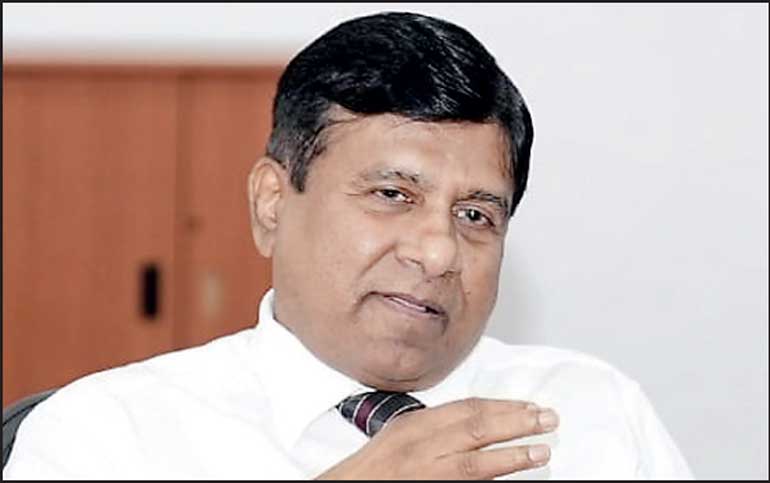Saturday Feb 21, 2026
Saturday Feb 21, 2026
Wednesday, 4 October 2023 00:00 - - {{hitsCtrl.values.hits}}

Justice and Prison Reforms Minister Wijeyadasa Rajapakshe
Justice and Prison Reforms Minister Wijeyadasa Rajapakshe yesterday proposed that the Government should implement a general amnesty period, allowing Sri Lankan citizens with funds in offshore accounts to repatriate their monies to Sri Lanka.
During the debate on the Anti-Corruption Bill in Parliament, the Minister revealed that a staggering $ 56 billion has been stashed overseas by influential persons in recent years, with an additional $ 9 billion deposited abroad this year alone.
“Money laundered in Sri Lanka has been hidden abroad,” he alleged. The Minister said he therefore proposes a motion to allow these persons to bring the funds back to Sri Lanka.
The Minister noted that according to the Global Financial Integrity Report, Sri Lankan exporters have moved a total of $ 53.5 billion abroad, with an additional $ 3 billion in 2022. He questioned how the country could be facing financial challenges when such significant amounts are parked overseas.
Rajapakshe issued a stern warning, stating that if individuals do not repatriate the funds within the amnesty period, he will present the list of names in Parliament and make them public.
Rajapakshe emphasised the significance of these funds, remarking: “These are this country’s resources, our people’s money. They can bring it back into the country and use it as they wish. If these funds were in our country, the local market would benefit significantly, and the exchange rate would be much more favourable.”
Rajapakshe also explained that while the Commission to Investigate Allegations of Bribery or Corruption (CIABOC) is authorised under Section 114 of the Bribery Act to seek a court order for the confiscation of funds removed from Sri Lanka through illicit channels, there are practical challenges in implementing this provision effectively.
During his speech, the Minister also criticised the Constitutional Council for what he alleged to be its failure to nominate members for the CIABOC. He pointed out that the Anti-Corruption Bill mandates the Constitutional Council to send its nominees to the President for the CIABOC.
Rajapakshe noted that there might be an error in the legislation regarding the use of the term “Constitutional Board” in some sections but clarified that the correct term, “Constitutional Council,” is specified in the section regarding the appointment of CIABOC members. He expressed frustration, questioning whether the Constitutional Council members were not fulfilling their responsibilities and even suggested mobilising public sentiment against the Constitutional Council.